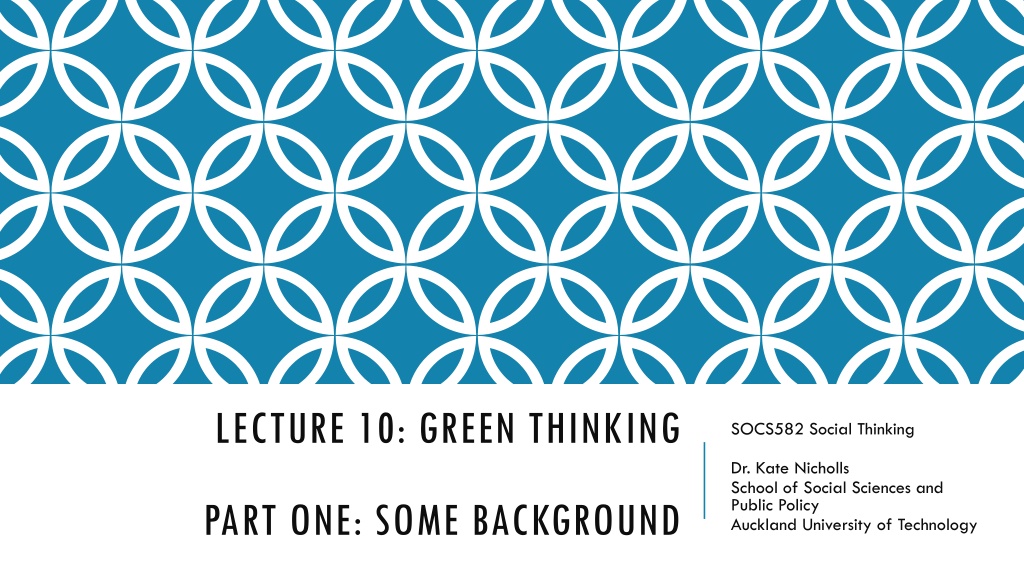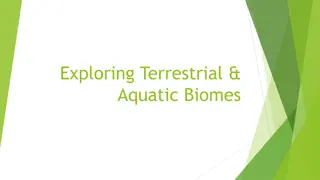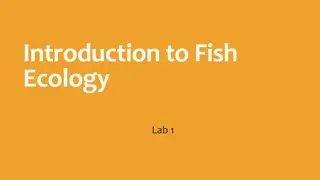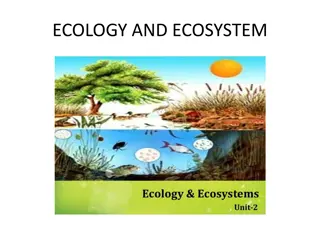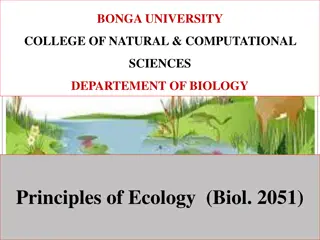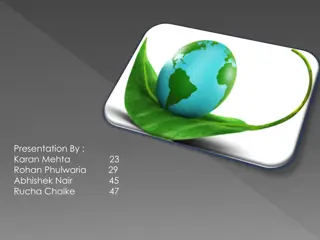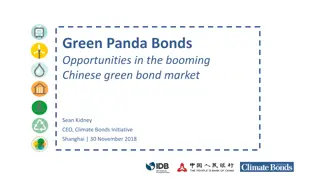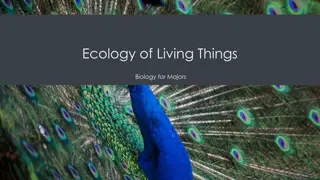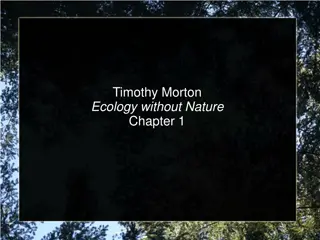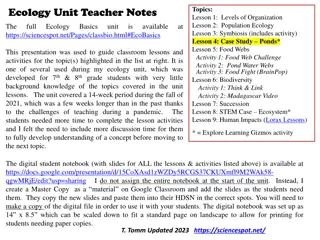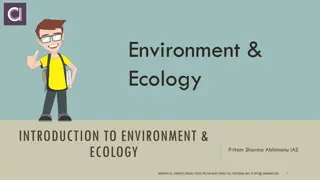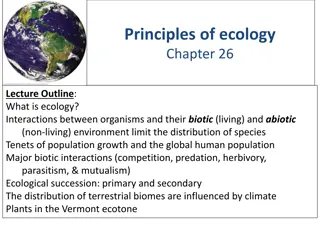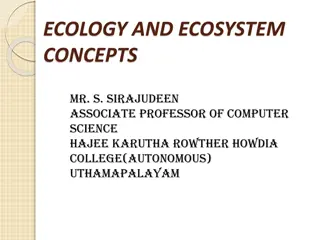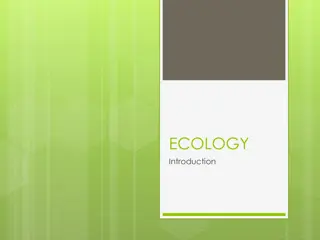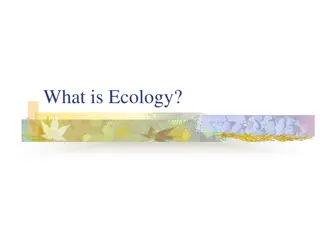Exploring Green Thinking: Societal Perspectives on Environment and Ecology
Delve into the realm of green thinking through the eyes of social sciences in this lecture by Dr. Kate Nicholls at Auckland University of Technology. The discourse ranges from traditional Western views on nature to the rise of the green movement, including discussions on deep ecology, social ecology, and the intersection of green and social thinking in the context of social justice.
Download Presentation

Please find below an Image/Link to download the presentation.
The content on the website is provided AS IS for your information and personal use only. It may not be sold, licensed, or shared on other websites without obtaining consent from the author. Download presentation by click this link. If you encounter any issues during the download, it is possible that the publisher has removed the file from their server.
E N D
Presentation Transcript
LECTURE 10: GREEN THINKING SOCS582 Social Thinking Dr. Kate Nicholls School of Social Sciences and Public Policy Auckland University of Technology PART ONE: SOME BACKGROUND
LECTURE OUTLINE Part One: Some background. Traditional Western social thinking about the natural world. The green movement: a rising consciousness about environmental issues. Environmental issues and mainstream political ideologies. Part Two: Deep ecology. James Lovelock. Arne Naess. Part Three: Social ecology. Social ecology and anarchism. Green thinking and social thinking: social justice.
NATURE IN WESTERN SOCIAL THOUGHT
Nature is haughty and proud but must be subdued and made to yield her secrets so that man can then turn her secrets against her, shaping nature as on an anvil . Technology lets men not merely exert a gentle guidance over nature s course; they have the power to conquer and subdue her, to shake her to her foundations so that she is forced out of her natural state, squeezed and moulded for our purposes. Philosopher Francis Bacon (1561-1626). Land that is left wholly to nature, that hath no improvement of pasturage, tillage, or planting, is called, as indeed it is, waste; and we shall find the benefit of it amount to little more than nothing . John Locke
The bourgeoisie, during its rule of scarce one hundred years, has created more massive and more colossal productive forces than have all preceding generations together. Subjection of nature s forces to man, machinery, application of chemistry to industry and agriculture, steam navigation, railways, electric telegraphs, clearing of whole continents for cultivation, canalization of whole rivers, whole populations conjured up out of the ground what earlier century had even a presentiment that such productive forces slumbered in the lap of social labour! Marx and Engels, The Communist Manifesto.
RISING CONSCIOUSNESS ABOUT THE ENVIRONMENT Wildlife and habitat conservation late c.19th, c. early 20th. 1950s- 1980s: Nuclear testing. Water pollution. Air pollution and acid rain . The ozone layer and CFCs. Greenhouse effect. 1990s-2000s. Climate change. New Zealand: Conservation, Forest and Bird (1923), national parks. Save Manapouri Campaign (late 1950s-1970s).) Nuclear testing and anti-nuclear ship campaign. The Values Party. Global warming and water pollution.
RACHEL CARSON (1907-64) Silent Spring (1962). Use of pesticides. Ecology, or the interdependence of nature. http://www.rachelcarson.org/
CONTEMPORARY GREEN POLITICS Rise of green political parties out of environmental social movements. Associated with centre-left politics, but people across the spectrum can and do care about environmental issues. In parliament, especially in government, green parties do often move to the centre. Blue green movement. Different solutions: market-based e.g. carbon trading vs regulation, taxation, lowering consumption
